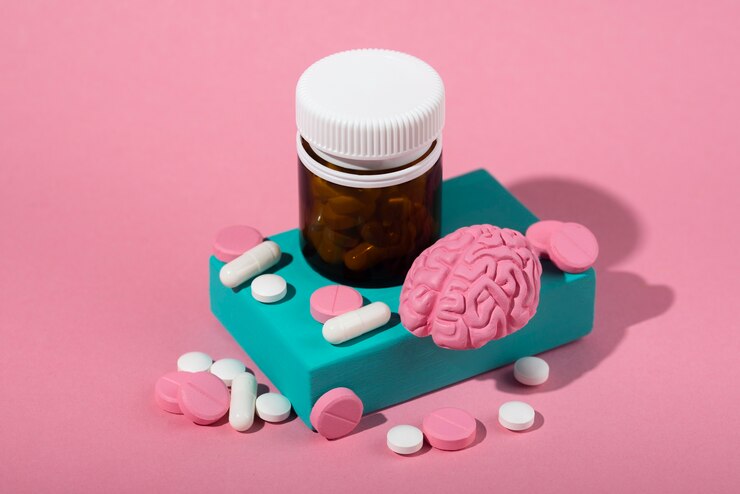Alzheimer’s Medication
Getting Through the Maze: Medicinal Approaches for Alzheimer’s Disease
Alzheimer’s disease (AD) is a neurological illness that worsens with time and causes memory loss and cognitive decline. Pharmaceutical interventions are essential for controlling symptoms and may even slow down the progression of the disease, even if there is currently no cure. This blog post explores the world of AD drugs, arming you with information about their advantages, drawbacks, and modes of action.
Table of Contents

Exposing the Objectives: Glutamate and Acetylcholine Systems
Alzheimer’s Medication
The two main neurotransmitter systems in the brain that are targeted by current AD medicines are:
- Acetylcholine (ACh): An essential neurotransmitter for cognition, memory, and learning. ACh function and production are reduced in AD.
Another neurotransmitter that can harm brain cells in excess is glutamate.
The following is how drugs deal with these imbalances:
Alzheimer’s Medication
- Inhibitors of Cholinesterase:
For mild to severe AD, these drugs represent the cornerstone of pharmacological treatment. They function by preventing the breakdown of ACh by the enzyme cholinesterase. As a result, the brain’s levels of ACh rise, which may enhance concentration, memory, and communication abilities. Galantamine (Razadyne), rivastigmine (Exelon), and donepezil (Aricept) are a few examples.
- Memantin:
This drug affects the glutamatergic system. By controlling NMDA receptor activation, it guards against excessive glutamate stimulation and preserves brain tissue. Memantine is mostly used to treat moderate-to-severe AD; it may also aid with some everyday functions and behavioural symptom management.
Evaluating the Advantages and Drawbacks
Alzheimer’s Medication
Even while pharmacological therapies are quite beneficial for AD patients, it’s critical to recognise their drawbacks:
- Mild Effects: These drugs don’t treat AD; their main benefits might be a slight alleviation of symptoms and a possible halting of the illness’s course.
- Individual Variability: Everybody reacts differently to drugs. While some people may find minor improvements, others may enjoy tremendous benefits.
Cholinesterase inhibitor side effects are common and include nausea, vomiting, diarrhoea, and appetite loss. Memantine may result in weariness, headaches, and dizziness.
- New Therapeutic Approaches:
New pharmaceutical strategies are being researched:
- Anti-amyloid medications: These target the amyloid plaque accumulation that is a characteristic of AD. Although some have demonstrated potential in clinical trials, more investigation is required.
- Anti-tau therapies: Targeting tau tangles, another protein anomaly associated with AD, is being explored using similar strategies.
- Combination therapies: A more all-encompassing approach to treating AD may be provided by combining various drugs with complimentary modes of action.
Treatment Optimisation: Collaborating with a Medical Expert
Alzheimer’s Medication
For AD, there isn’t a single, universal strategy for pharmaceutical treatments. The optimal strategy takes into account:
- Stage of the disease: Different drugs work better at different stages of the disease.
- Individual response: Keeping an eye on the patient’s reaction and modifying the drug as needed.
- General health: Taking into account any current illnesses and any drug interactions.
To create a safe and efficient treatment plan that is customised to the patient’s unique requirements, it is imperative to collaborate with a healthcare provider that specialises in dementia care.
In conclusion, a glimmer of hope in an otherwise difficult landscape
Alzheimer’s Medication
For those with AD, pharmacological therapies combined with non-pharmacological methods can greatly enhance quality of life. These drugs provide some optimism while the hunt for a solution is ongoing since they can help control symptoms and possibly halt the progression of the disease. Future treatments should become much more potent as research progresses.


